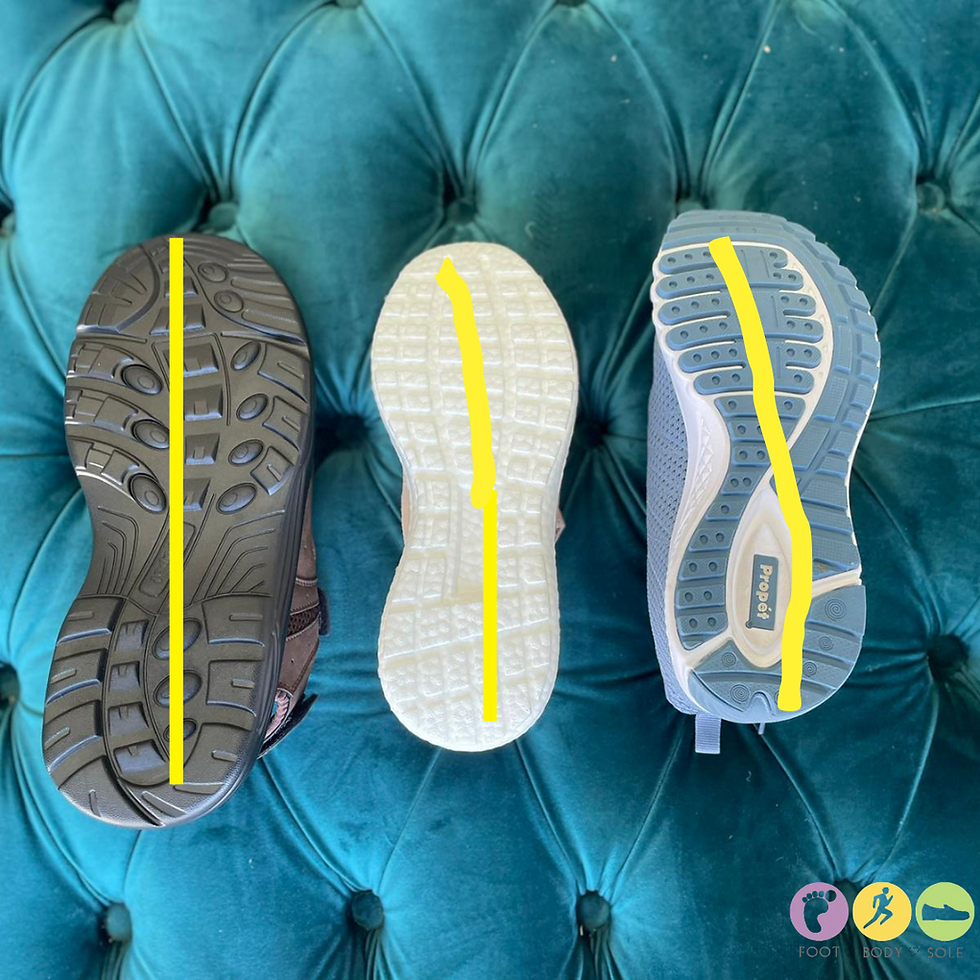Caring for children's feet
- Foot Body Sole
- Apr 25, 2019
- 3 min read
Updated: Apr 26, 2019

DEVELOPMENT OF A CHILD'S FOOT
Between birth & a child's first independent steps, the bones in the feet & legs undergo enormous developmental changes. During the 1st year of a child's life their feet grow rapidly, reaching almost half their adult size. Feet and legs continue to develop until a child's mid teens.
To ensure healthy development takes place, feet need room to grow. Tight footwear, tight socks and stockings, even too-tightly-tucked-in bedclothes can have an impact on the growing foot. Socks and bootees should allow room for toes to move & blankets should allow foot & leg movements.
A child's foot can also be affected by sitting & sleeping positions. Sitting on the floor with knees bent and feet turned out, i.e., 'frog-sitting', or sleeping on their tummies with feet turned out, can inhibit normal development.
THE RIGHT SHOES
When your child begins to walk, shoes are generally not necessary, unless a problem is detected. Allowing your child to walk barefoot, or with socks, will help normal muscle development. Think about buying a 1st pair of shoes when your child is walking independently. Shoes become necessary for protection when children begin walking outside the home environment. Time spent barefoot is all important, where possible & practical.

When buying shoes, there are few features to look for:
Adequate width & length are very important. Allow approximately a finger's width between the child's longest toe & the end oft he shoe. Width should be comfortable. Often one foot is larger than the other, so always try on both shoes & buy them to fit the larger foot.
The toe area should be rounded with enough room for toes to wriggle easily.
The shoe should have good heel support. This can be tested by pushing on the back of the shoe with your thumb. If it easily collapses under the pressure, it's not strong enough.
The sole should flex or bend across the ball of the foot, not in the middle. Look for a soft & cushioning sole.
Laces, buckles or velcro straps across the middle of the child's foot will ensure good fit & help prevent foot fatigue.
Shoes should fit when you buy them. Beware advice about 'wearing shoes in'. If they don't fit now, they won't later.

FLAT FEET
The sole of a normally developed foot will have an arch, called the medial arch, formed by muscles & ligaments. For the 1st 2 years, your child's feet will seem to have 'fallen' arches or 'flat feet'. This is normal in a young child & is due to weak muscle tone & generous padding of fat in this area. As your child masters walking, the ligaments & muscles will strengthen & the fat pads in the arch area won't be so noticeable. By around 5 Years of age, your child should have normal arches in both feet.
IN-TOEING & OUT-TOEING
Many toddlers walk 'pigeon-toed' with either one or both feet turned inwards. In most cases, this is simply a sign of developing posture & balance, & should resolve by itself somewhere between the ages of 3-5 years. However, if the 'in-toeing' is severe, or isn't improving, see your podiatrist as soon as possible for an assessment.
Occasionally, toddlers walk with their feet turned outwards. This tends to be more common in children who were born prematurely. In most cases 'out-toeing' resolves by itself as posture & balance matures.
BABY WALKERS
Normal babies walk when they are ready - when their body is strong enough to support their weight. Putting a baby in a 'walker' can upset this normal development sequence. Even the slow developer is better off making progress to walking without the aid of a walker device. Furthermore, in a walker, the child may learn an abnormal walking patter, i.e., making progress by walking with toes pointed in & downward.

WHEN TO SEE A PODIATRIST
Podiatrists deal with a whole range of problems concerning children's feet & legs. From fungal infections to ingrowing nails, curly toes to flat feet.
If you recognise any issues with your child's development from the above, we offer a free 15 minutes Paediatric assessment for any child up until 12 years old at the clinic.
Book online 24/7 on our website or call 1800 778 316.









Comments